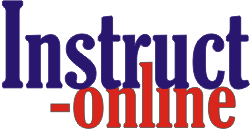
 Phone
(319) 626-2302
Phone
(319) 626-2302
Catalog Number : ngd1726
Title : 34 Safe Practices for Better Healthcare - The First 18 Safe Practices
Speaker : Sue Dill
Webplay Recording Date : 2-8-2011
Webplay Price : $ 200 for two weeks viewing
Webinar Purpose:
This webinar will cover the National Quality Forum 34 Safe Practices for Better Healthcare. These have been endorsed not only by the National Quality Forum but many other organizations. The 34 practices are divided into seven broad categories. Each will be discussed and resources will be provided to help implement each of these practices. They represent the most current evidence-based practices and are a must attend for any hospital or other healthcare facility that is serious about patient safety. Healthcare leaders and governing boards are explicitly called on to be proactive by reviewing the safety of their organization and the quality of care provided. Implementing the 34 Safe Practices can also reduce medical malpractice exposure, increase compliance with accreditation standards and CMS standards and improve patient safety. Is your hospital following all 34 Safe Practices?
Note: This series are broken up into 2 different sections due to the amount of information. The dates are listed below under topics on what is covered which day.
Target Audience:
- Quality and PI Staff
- Chief Nursing Officer
- Patient Safety Officer
- Nurse Managers
- Staff Nurses
- Physicians
- Compliance Officer
- Nurse Educator
- Joint Commission Coordinator
- Risk Manager
- Pharmacists
- Director of Pharmacy
- Pharmacist
- Infection Preventionist
- Director of Health Information Management
- Patient Safety Committee Members
- Senior Leadership Staff
- Board Members
- Radiology Staff
- Chief Medical Officer
- and all others interested in improving patient safety in healthcare
Webinar Objectives:
- Recall that there are 34 safe practices that every healthcare facility should know
- Recall that hospitals should redesign the discharge process to prevent unnecessary readmissions
- Discuss the importance that team training can have to improve patient safety
- Recall that the Joint Commission requires a Culture of Safety Survey be done
A Few of the Topics that will be covered:
-
Chapter 2: Improving Patient Safety by Creating and Sustaining a Culture of Safety
-
Safe Practice 1: Culture of Safety Leadership Structures and Systems
-
Safe Practice 2: Culture Measurement, Feedback, and Intervention
-
Safe Practice 3: Teamwork Training and Skill Building
-
Safe Practice 4: Risks and Hazards
-
-
Chapter 3: Improving Patient Safety through Informed Consent, Life-Sustaining Treatment, Disclosure, and Care of the Caregiver
-
Safe Practice 5: Informed Consent
-
Safe Practice 6: Life-Sustaining Treatment
-
Safe Practice 7: Disclosure
-
Safe Practice 8: Care of the Caregiver
-
-
Chapter 4: Improving Patient Safety by Matching Healthcare Needs with Service Delivery Capability
-
Safe Practice 9: Nursing Workforce
-
Safe Practice 10: Direct Caregivers
-
Safe Practice 11: Intensive Care Unit Care
-
-
Chapter 5: Improving Patient Safety by Facilitating Information Transfer and Clear Communication
-
Safe Practice 12: Patient Care Information
-
Safe Practice 13: Order Read-Back and Abbreviations
-
Safe Practice 14: Labeling Diagnostic Studies
-
Safe Practice 15: Discharge Systems
-
Safe Practice 16: Safe Adoption of Computerized Prescriber Order Entry
-
-
Chapter 6: Improving Patient Safety through Medication Management
-
Safe Practice 17: Medication Reconciliation
-
Safe Practice 18: Pharmacist Leadership Structures and Systems
-
Contact Hours:
- Nursing participants: Instruct-online has approved this program for 1.2 contact hours, Iowa Board of Nursing Approved Provider Number 339.
- All other participants: Must attend the entire Webinar and complete a Webinar critique to receive a 1 Hour Attendance Certificate for each program.
Completion of offering required prior to awarding certificate.
Refund Policy:
Full tuition is refunded immediately on request if the participant has not been sent the program materials and instructions. Once the instructions (including access codes) have been sent, a full refund will be issued only after the program runs and it is verified that the participant did not access the program
.